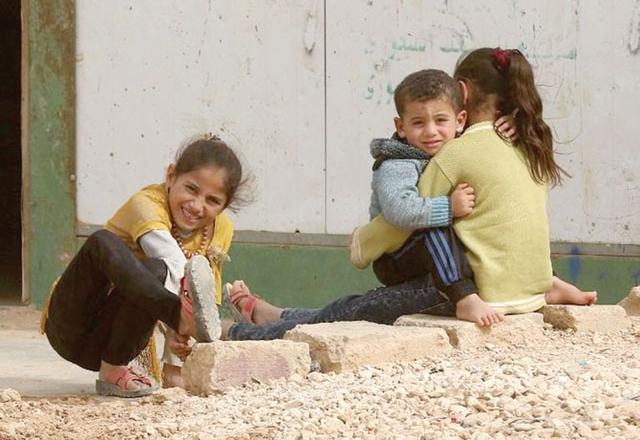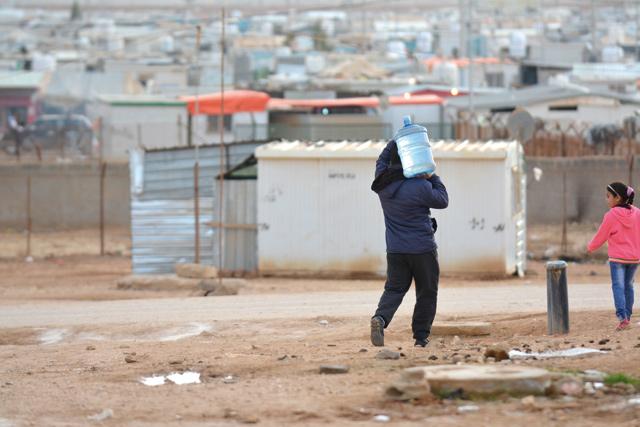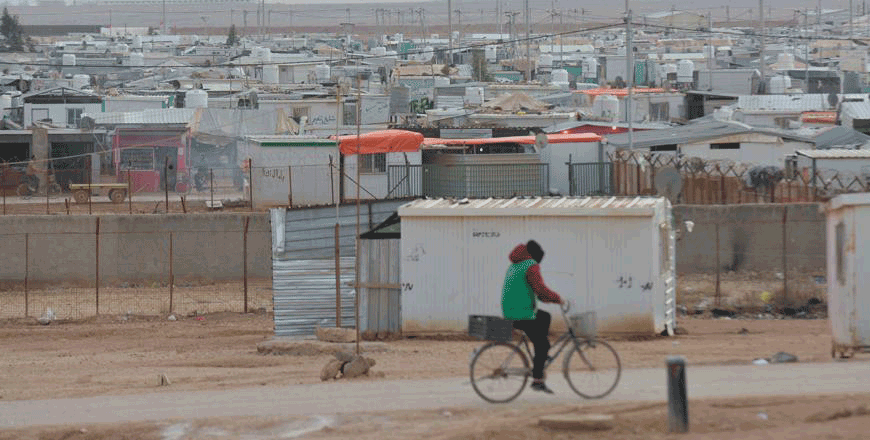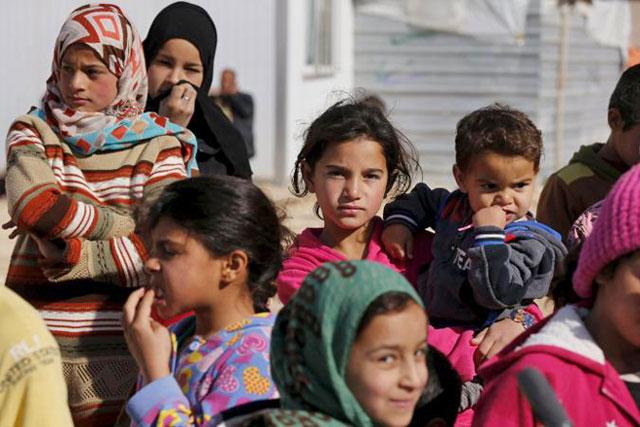You are here
Int’l community needs to ‘walk the talk’ of Brussels pledges — NGOs
By Camille Dupire - Oct 03,2018 - Last updated at Oct 03,2018

‘Walk the Talk’ common publication aims to give a reality check of the promises made by Jordan and the international community towards Syrians (AFP photo)
AMMAN — As the 73rd Session of the UN General Assembly continues its meetings in New York, humanitarian actors working in Jordan on Monday issued "Walk the Talk", a report aiming to assess the progress and challenges witnessed in the implementation of commitments made by Jordan and the international community at the Brussels conference 2018 on Syria.
Covering the areas of education, livelihoods, documentation and health, the publication is the second common memorandum published by the Jordan INGO forum (JIF), a network of 61 international non-governmental organisations operating in Jordan.
“In Brussels last April, the Government of Jordan ( GoJ) and the international community laid out a number of commitments to improve the lives of Syrian refugees and vulnerable Jordanians, pledging to create a ‘monitoring mechanism of the Jordan Compact’ to increase accountability,” explained Alain Coutand, JIF coordinator, adding: “Walk the Talk therefore aims to give a reality check of these promises.”
Stressing the crucial need for both donors and the government to put this system in place in light of the upcoming Brussels III, Coutand said: “Shared responsibility is the foundation of the partnership between GoJ and the international community and while support to Jordan is obviously financial, there is more to it”.
“The international community [is] also committed to opening more space for resettlement and we want to stress how crucial it is that this promise is met,” he told The Jordan Times on Tuesday, citing the very small and decreasing number of refugees who departed Jordan to be resettled — only 4,989 in 2017 — which he said “sends a very negative message to host governments like Jordan”.
Education
Starting with the educational sector, Walk the Talk showed that while 130,668 Syrian refugee children were enrolled in public schools and 7,643 out-of-school children were provided with certified non-formal education in the 2017-18 academic year, an estimated 73,000 Syrian refugee children are still out of certified education, including children with disabilities and those residing in informal tented settlements.
In spite of the government’s official announcement of a grace period enabling all children to enrol in schools, regardless of their nationality and documentation status, JIF noted that the government has “yet to issue an official confirmation of this decision” and there is no guarantee that it will be consistently applied.
“Ultimately, learning achievements, employment and post-secondary education prospects upon completing basic education are poor,” the forum stated, noting that the number of Syrian youth accessing accredited tertiary education in national institutions remains “extremely low”.
Livelihoods
Highlighting that a total of 105,404 work permits have been issued and renewed between January 2016 and June 2018, according to governmental figures, the forum noted, however, that only 4 per cent of these recipients were women.
Female refugees’ difficult situation was further compounded by the fact that the government has not created an enabling regulatory framework for registering Syrian businesses, and remains opposed to refugees’ home-based businesses, the forum highlighted, stressing that “this especially impacted female headed households or highly vulnerable individuals who are unable to leave home in search for work”.
JIF nonetheless praised the regulation of the cash for work opportunities under Jordan labour code, which allowed many refugees to receive social security coverage and better job entitlement.
However, it pointed out that the restrictions in work sectors opened to foreigners still exclude refugees from high-skilled employment and semi-skilled labour. Additionally, mandatory sector-quotas for non-Jordanians prevents employers from formalising the majority of their Syrian staff, “leaving them in precarious conditions”.
Documentation
With regards to documentation, the forum commended the government’s rectification of Refugee Status Process (RSP) implemented to legalise the status of urban Syrian refugees living informally outside the camps, allowing them to acquire a valid UNHCR Asylum Seeker’s Certificate and a Ministry of Interior (MoI) Service Card.
“As of September 21, 391 Syrian refugees were regularised and a vast majority of them subsequently obtained an MoI card, enabling them to regularise their stay outside the camps,” JIF said, while also commending the government’s maintaining of the 2017 measures to ease access to birth and marriage certifications.
Nevertheless, the report pointed out the great challenge posed by the fact that not all refugees are eligible for the RSP, which implies restricted access to assistance, restricted freedom of movement and exploitative work conditions.
Health
As for health, the forum underlined that despite an ongoing discussion between donors and the Jordanian government to put in place specific funding in order to mitigate the impact of subsidy cuts for refugees’ healthcare, challenges are pressing for said households.
“The cut in health subsidies for Syrian refugees has majorly impacted the health status and overall vulnerability of Syrian refugees in Jordan, as health costs have tripled, making access to health completely unaffordable for Syrian households,” the forum stressed, noting that Syrian refugees have turned to self-diagnosis, self-medication, skipping or delaying doctor consultations and interrupting medication intake.
“Ultimately, Syrian refugee households resort to negative coping mechanisms, such as contracting more debts, but also sometimes removing children from school, [to] work informally under precarious conditions, and moving to lower standard housing,” the report warned.
Related Articles
AMMAN — A network of 61 international non-governmental organisations (INGOs) working in Jordan have recently come together to produce “Walk
AMMAN — All 59 members of the Jordan INGO Forum (JIF) have called on the international community to sustain support to Jordan so the Kingdom
AMMAN — Sixty-one international non-governmental organisations (INGOs) working in Jordan have called for stronger international solidarity a



















